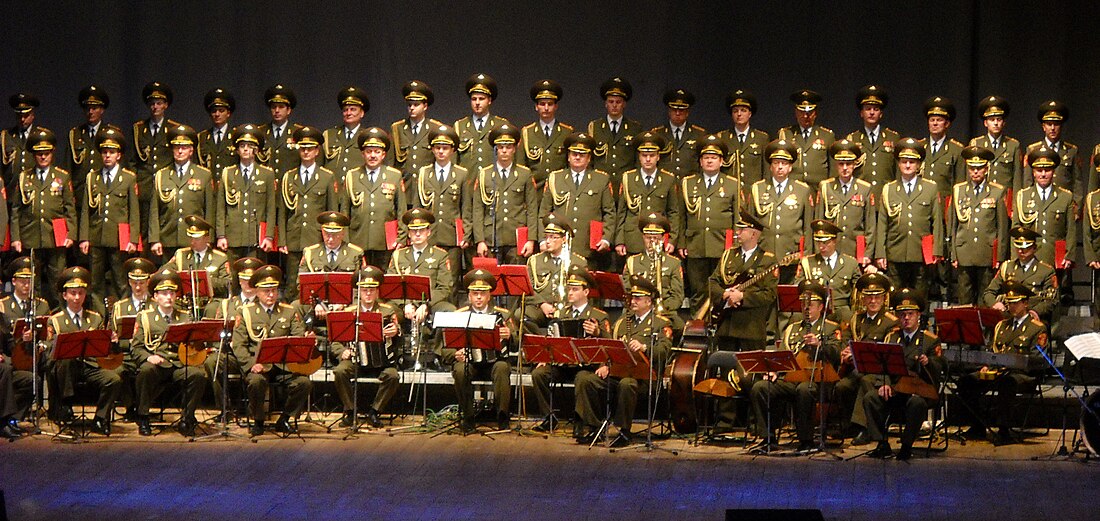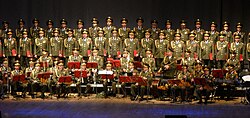Top Qs
Timeline
Chat
Perspective
Let's Go (march)
Russian military march From Wikipedia, the free encyclopedia
Remove ads
"V putj"[a] (Russian: В путь, pronounced [f‿ˈputʲ]) is a song written in 1954 by Soviet composer Vasily Solovyov-Sedoi and poet Mikhail Dudin. It was originally written for the film Maksim Perepelitsa starring Leonid Bykov. The movie itself was released in 1955, and the song has achieved fame and popularity independently of it ever since. To this day it is still used as a so-called drill song (somewhat similar to a cadence call in the U.S. Army). In 1959, Vasily Solovyov-Sedoi received the Lenin Prize for this song.[1][2]
"V put'" is performed on Victory Day as well as on other military holidays in Russia, Belarus and other former Soviet republics.[citation needed] This song has also been translated into German, Chinese and Korean (DPRK) versions. The German translation, sung by the Erich-Weinert-Ensemble, became the signature Nationale Volksarmee march, "Unterwegs".
Remove ads
Lyrics
Russian original
English translation
I
We still have quite a long way to go,
Cheer up soldier, raise your head!
Regimental banners flutter, flutter,
Our commanders lead ahead.
Chorus:
Soldiers, let's march, march, march!
And as for you, my lover,
I'll write and send you letters.
Farewell! The bugle calls,
Hey soldiers — march on!
II
Every warrior, a brave lad,
Like a falcon in their ranks.
We have befriended ourselves with glory,
Gained in the heat of battle!
Chorus
III
Let our enemies hear this phrase,
Not a threat, but we will say:
Together we crossed half of the planet,
And we will do it again!
Chorus
IV
Upcoming for everybody:
Days of study and hard work!
Every single year, our villages
And cities have thrived!
Chorus[4]
Remove ads
Notes
- Either translated in English as 'Onwards', 'En route', or 'Let's go'.
- See Help:IPA/Russian and Russian phonology.
References
External links
Wikiwand - on
Seamless Wikipedia browsing. On steroids.
Remove ads

